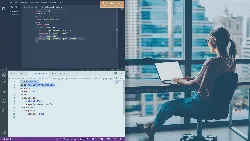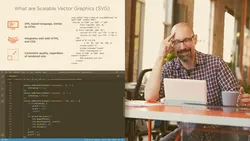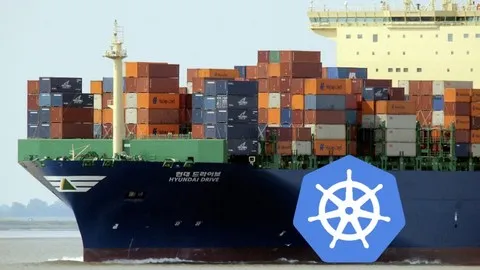
Kubernetes for Developers: Integrating Volumes and Using Multi-container Pods 
This course provides developers with the skills to deploy applications to Kubernetes in production. It covers topics such as integrating external storage volumes, using multi-container Pod patterns, and securing application access to the Kubernetes API. ▼
ADVERTISEMENT
Course Feature
![]() Cost:
Cost:
Free Trial
![]() Provider:
Provider:
Pluralsight
![]() Certificate:
Certificate:
Paid Certification
![]() Language:
Language:
English
![]() Start Date:
Start Date:
On-Demand
Course Overview
❗The content presented here is sourced directly from Pluralsight platform. For comprehensive course details, including enrollment information, simply click on the 'Go to class' link on our website.
Updated in [February 21st, 2023]
What does this course tell?
(Please note that the following overview content is from the original platform)
This course is for everyone looking to deploy applications to Kubernetes in production. You'll learn how to integrate external storage volumes, leverage powerful multi-container Pod patterns, and secure application access to the Kubernetes API.
This course teaches vital skills for deploying applications to Kubernetes in production environments. In this course, Kubernetes for Developers: Integrating Volumes and Using Multi-container Pods, you'll gain the ability to deploy and secure complex real-world applications on Kubernetes. First, you'll learn how to integrate production-grade external storage volumes into real-world Kubernetes clusters. Next, you'll discover the major multi-container Pod Patterns and gain hands-on experience implementing them and learning how they can augment and productionise your Kubernetes applications. Finally, you'll explore Kubernetes authentication and authorization, and learn how to use Service Accounts and RBAC to control access to the Kubernetes API from the applications running on your clusters. When you're finished with this course, you'll have the skills and knowledge needed to securely deploy more complex applications to Kubernetes. Software required: Access to a Kubernetes cluster (easy options include Docker Desktop or Minikube on your laptop, or any of the major hosted cloud Kubernetes services).
We consider the value of this course from multiple aspects, and finally summarize it for you from three aspects: personal skills, career development, and further study:
(Kindly be aware that our content is optimized by AI tools while also undergoing moderation carefully from our editorial staff.)
What skills and knowledge will you acquire during this course?
This course is designed to help developers deploy applications to Kubernetes in production environments. Upon completion, learners will have acquired the skills and knowledge needed to securely deploy more complex applications to Kubernetes. This includes integrating external storage volumes, leveraging multi-container Pod patterns, and securing application access to the Kubernetes API. Learners may also pursue further development paths in Kubernetes, such as learning more about Kubernetes networking, deploying applications to Kubernetes in production, or developing Kubernetes-native applications. Additionally, learners may find it helpful to read up on topics such as cloud computing, DevOps, and container orchestration.
How does this course contribute to professional growth?
This course contributes to professional growth by providing learners with the skills and knowledge needed to securely deploy more complex applications to Kubernetes. Learners will gain an understanding of topics such as integrating external storage volumes, leveraging multi-container Pod patterns, and securing application access to the Kubernetes API. Additionally, learners may pursue further development paths in Kubernetes, such as learning more about Kubernetes networking, deploying applications to Kubernetes in production, or developing Kubernetes-native applications. They may also pursue development paths in related fields, such as cloud computing, DevOps, or container orchestration.
Is this course suitable for preparing further education?
This course is suitable for preparing further education in Kubernetes, as it covers topics such as integrating external storage volumes, leveraging multi-container Pod patterns, and securing application access to the Kubernetes API. Additionally, learners may pursue further development paths in Kubernetes, such as learning more about Kubernetes networking, deploying applications to Kubernetes in production, or developing Kubernetes-native applications. Learners may also pursue development paths in related fields, such as cloud computing, DevOps, or container orchestration. It is suggested that learners have access to a Kubernetes cluster before taking this course, and may also benefit from taking related courses, such as Kubernetes for Developers: Deploying Applications to Kubernetes, Kubernetes for Developers: Networking, or Kubernetes for Developers: Developing Kubernetes-Native Applications. Additionally, learners may find it helpful to read up on topics such as cloud computing, DevOps, and container orchestration.
Course Provider

Provider Pluralsight's Stats at AZClass
Pluralsight ranked 16th on the Best Medium Workplaces List.
Pluralsight ranked 20th on the Forbes Cloud 100 list of the top 100 private cloud companies in the world.
Pluralsight Ranked on the Best Workplaces for Women List for the second consecutive year.
AZ Class hope that this free trial Pluralsight course can help your Kubernetes skills no matter in career or in further education. Even if you are only slightly interested, you can take Kubernetes for Developers: Integrating Volumes and Using Multi-container Pods course with confidence!
Discussion and Reviews
0.0 (Based on 0 reviews)
Explore Similar Online Courses

Adding Graphics to Web Pages Using Canvas and SVG

Tracing and Leveraging Requirements

Python for Informatics: Exploring Information

Social Network Analysis

Introduction to Systematic Review and Meta-Analysis

The Analytics Edge

DCO042 - Python For Informatics

Causal Diagrams: Draw Your Assumptions Before Your Conclusions

Whole genome sequencing of bacterial genomes - tools and applications

Kubernetes for Beginners (Kubernetes + Docker)

Scalable Microservices with Kubernetes


Start your review of Kubernetes for Developers: Integrating Volumes and Using Multi-container Pods